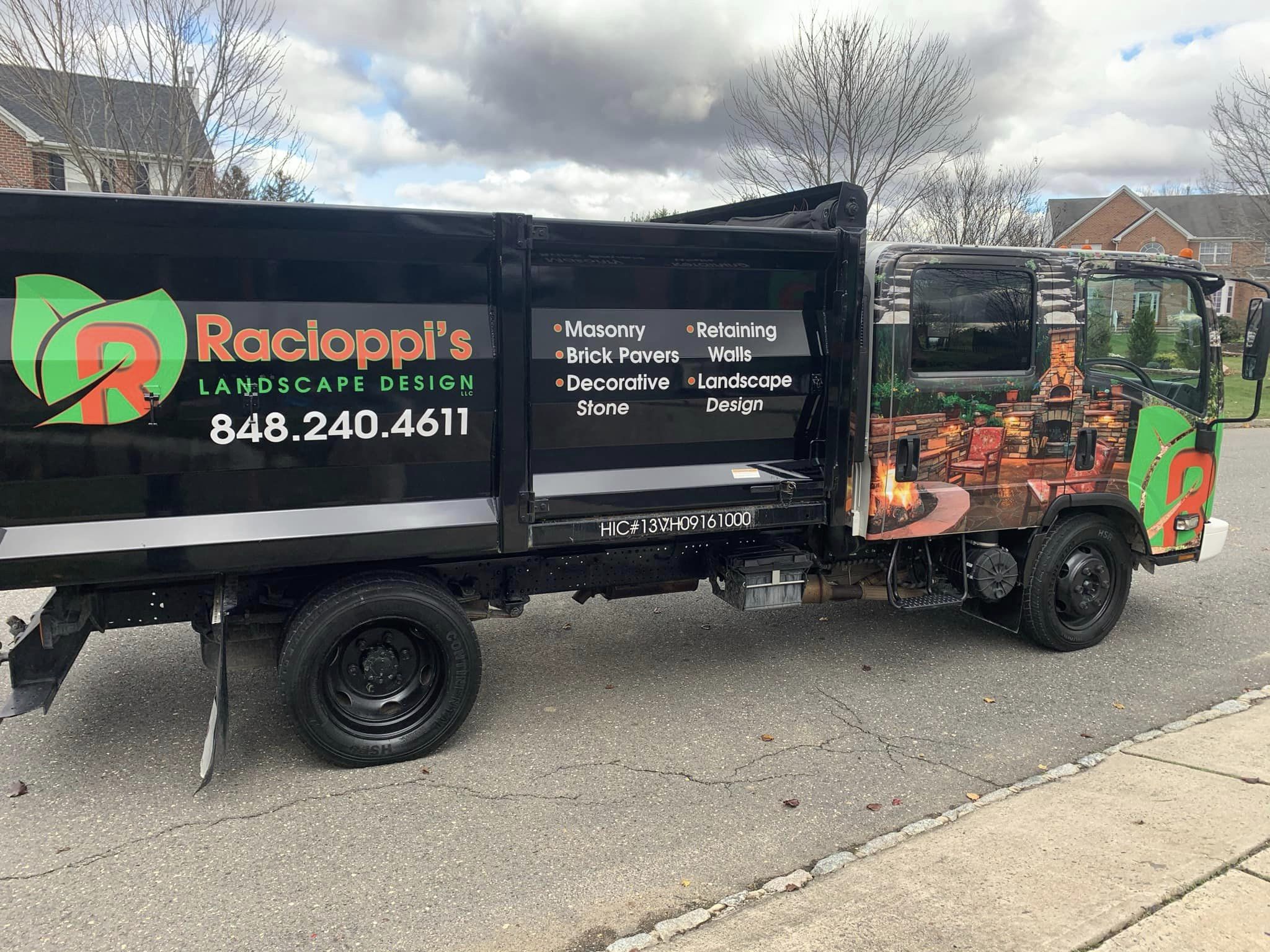
Got a chip in your Stone Paver?
Paver repairs made easy
Repairing a paver is a good way to restore its integrity and keep the functionality of the surface.
Extensive paver damage may require replacement.
Paver repair can involve a range of techniques and materials, depending on the type and extent of the damage.
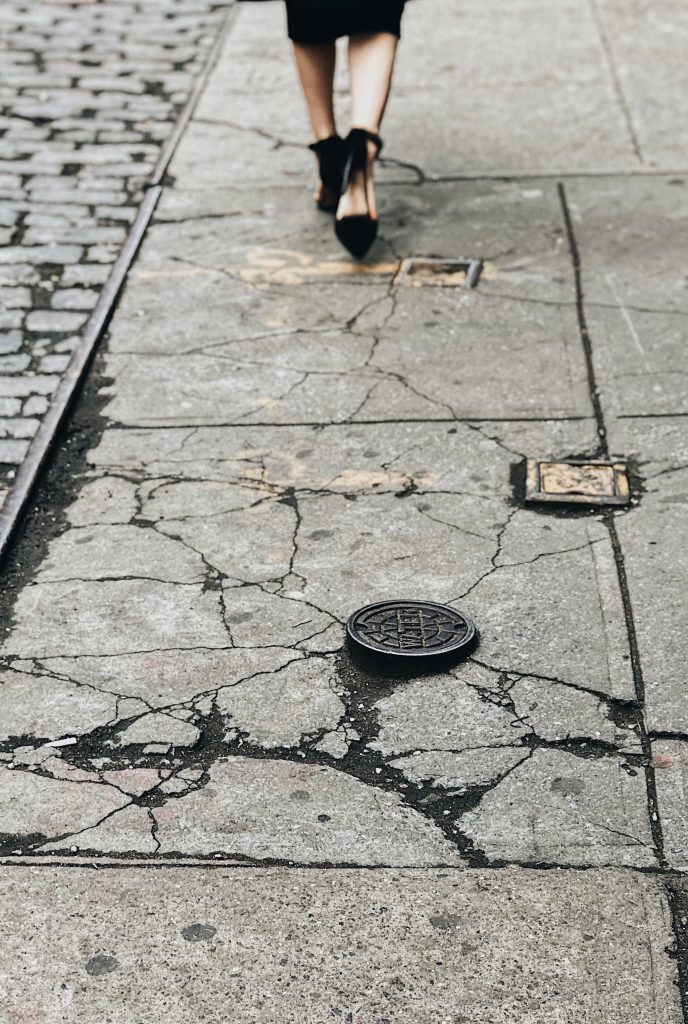
Paver repair refers to the process of fixing or restoring damaged or deteriorated pavers. Pavers are a popular choice for outdoor surfaces such as patios, walkways, and driveways, due to their durability and aesthetic appeal. However, pavers can become damaged or degraded over time due to wear and tear, staining, erosion, freeze-thaw cycles, insect infestations, or plant growth.
Paver repair can involve a range of techniques and materials.
Pavers in Sarasota, Florida aren't shy from harsh weather conditions.
For example, small chips or cracks can often be filled or smoothed out using a paver repair compound, while more extensive damage may require the replacement of individual pavers. In some cases, it may also be necessary to stabilize or reinforce the paver surface using sand, gravel, or other materials. Paver repair can be done by a homeowner or property owner, but it is often best to seek the assistance of a professional landscaping company with experience in paver repair to ensure that the job is done correctly and with the appropriate materials.
What paver damage requires repair?
1. Stone pavers wear and tear
Pavers can become chipped or fractured due to impact from heavy objects or foot traffic. Pavers can become scratched or abraded due to rubbing against rough surfaces or abrasive materials. The small pits or indentations due to weathering or exposure to acidic substances is called pitting. Fading happens when pavers lose their color over time due to exposure to sunlight or harsh weather conditions that happen often in Sarasota. Pavers can crack or break due to impact, pressure, or temperature changes as well. In general, wear and tear on pavers tends to occur gradually over time and may not be immediately noticeable. However, if left unrepaired, the damage can become more extensive and lead to more serious problems, such as instability or tripping hazards. Regular inspection of your pavers can help identify any issues early on, allowing for timely repair and maintenance to extend the life of your landscaping.
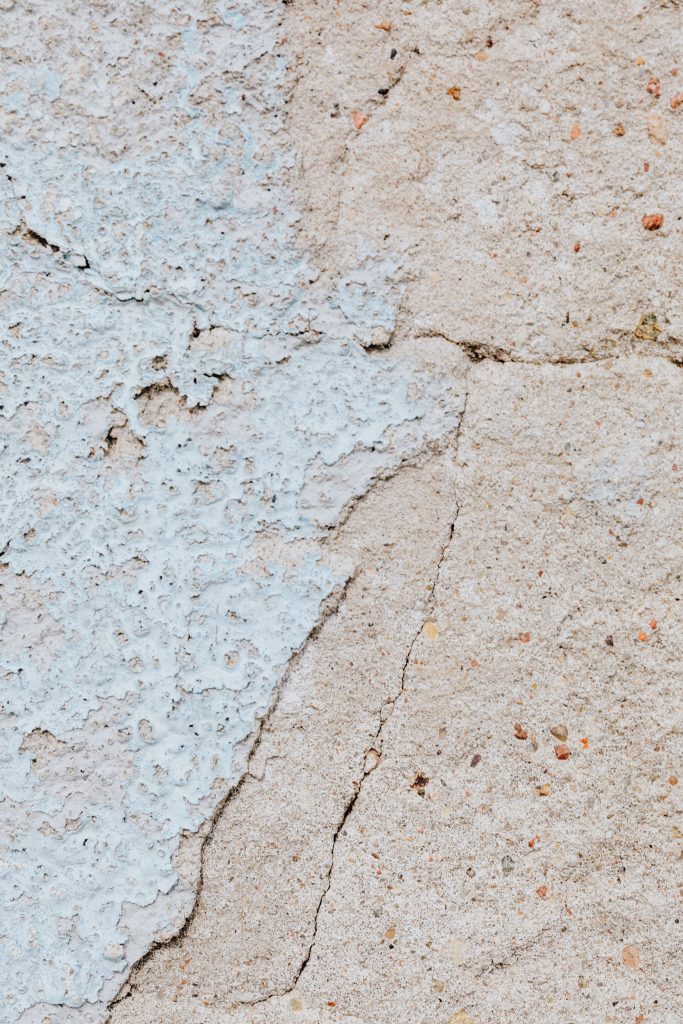
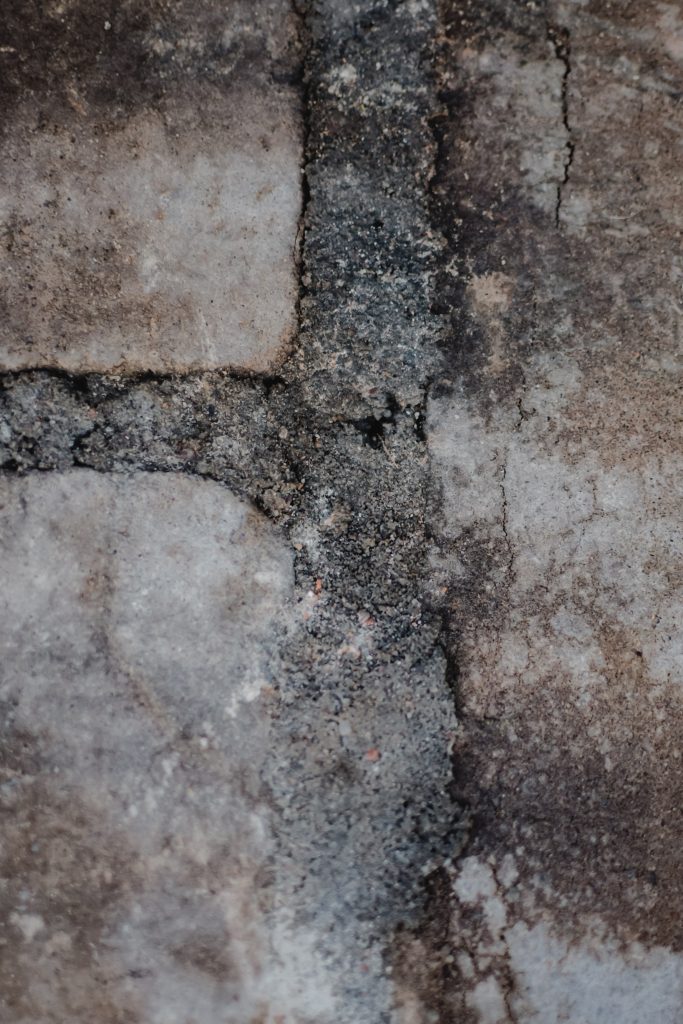
2. Pavers Staining
Staining on a paver can take several forms. Discoloration happens when pavers become discolored or stained due to exposure to spills or substances that contain dyes or pigments. Pavers can become etched or “burned” due to exposure to acidic substances, such as citrus juices or cleaners. It is also possible for a paver to develop a patina, or thin layer of film, due to exposure to weathering or atmospheric pollutants. Staining on pavers can occur due to a variety of factors, including spills, improper cleaning, or exposure to harsh chemicals. For example, if a paver is not sealed properly, it may be more susceptible to staining from spills or weathering. Additionally, using harsh cleaners or chemicals on pavers can cause etching or discoloration. To prevent staining on pavers, it is important to use caution when handling spills and to clean up any spills or stains promptly. It is also a good idea to use a paver sealer to protect the surface from stains and weathering. If staining does occur, it may be possible to remove it using a paver cleaner specifically designed for the type of stain. In some cases, however, the paver may need to be replaced.
2. Pavers Staining
Staining on a paver can take several forms. Discoloration happens when pavers become discolored or stained due to exposure to spills or substances that contain dyes or pigments. Pavers can become etched or “burned” due to exposure to acidic substances, such as citrus juices or cleaners. It is also possible for a paver to develop a patina, or thin layer of film, due to exposure to weathering or atmospheric pollutants. Staining on pavers can occur due to a variety of factors, including spills, improper cleaning, or exposure to harsh chemicals. For example, if a paver is not sealed properly, it may be more susceptible to staining from spills or weathering. Additionally, using harsh cleaners or chemicals on pavers can cause etching or discoloration. To prevent staining on pavers, it is important to use caution when handling spills and to clean up any spills or stains promptly. It is also a good idea to use a paver sealer to protect the surface from stains and weathering. If staining does occur, it may be possible to remove it using a paver cleaner specifically designed for the type of stain. In some cases, however, the paver may need to be replaced.

3. Pavers Erosion
Erosion is the process by which natural forces, such as wind and water, wear away or remove material from a surface. In the case of pavers, erosion can take several forms. Pavers can become scoured or worn away due to the abrasive action of wind or water. Undermining happens due to erosive action of water or the weight of heavy objects. When pavers get covered in sediment or debris due to erosion in the surrounding area it is called deposition. Erosion can occur due to a variety of factors, including the type of paver, the slope of the surface, and the amount of water or wind exposure the pavers receive. For example, pavers located on a steep slope or in an area prone to heavy rain or wind may be more susceptible to erosion. To prevent erosion of pavers, it is important to properly design and install the paver surface. This may include installing a paver base, using a sufficient amount of paver sand or jointing material, and grading the surface to ensure proper drainage. It may also be necessary to use erosion control measures, such as retaining walls or vegetation, to prevent erosion of the surrounding soil. Regular inspection and maintenance of the pavers can also help identify any issues early on, allowing for timely repair and maintenance to extend the life of your landscaping.
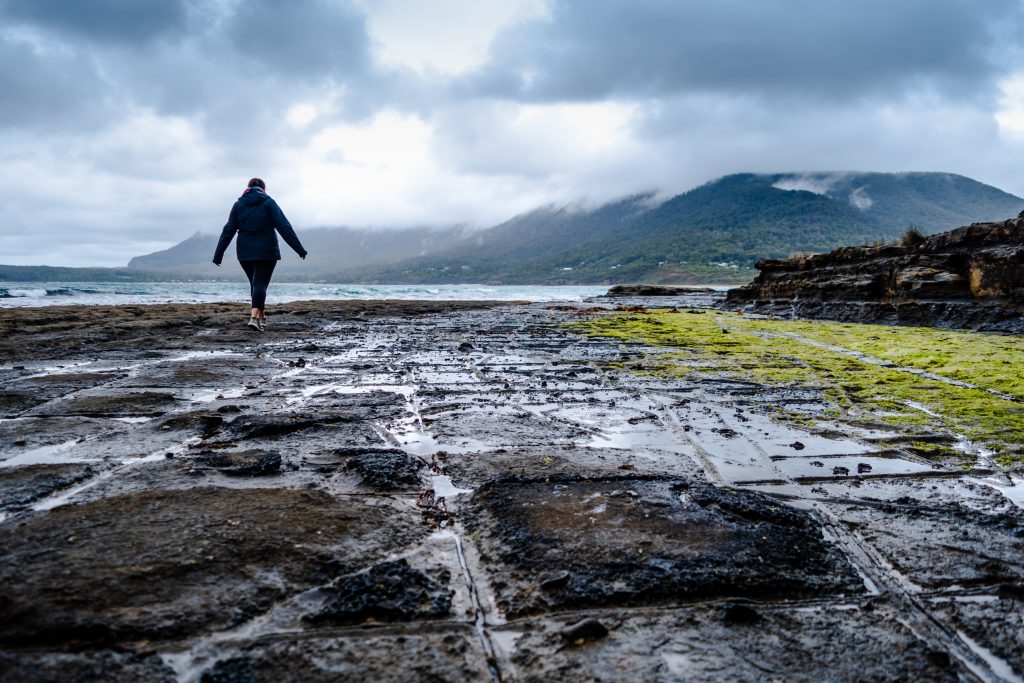
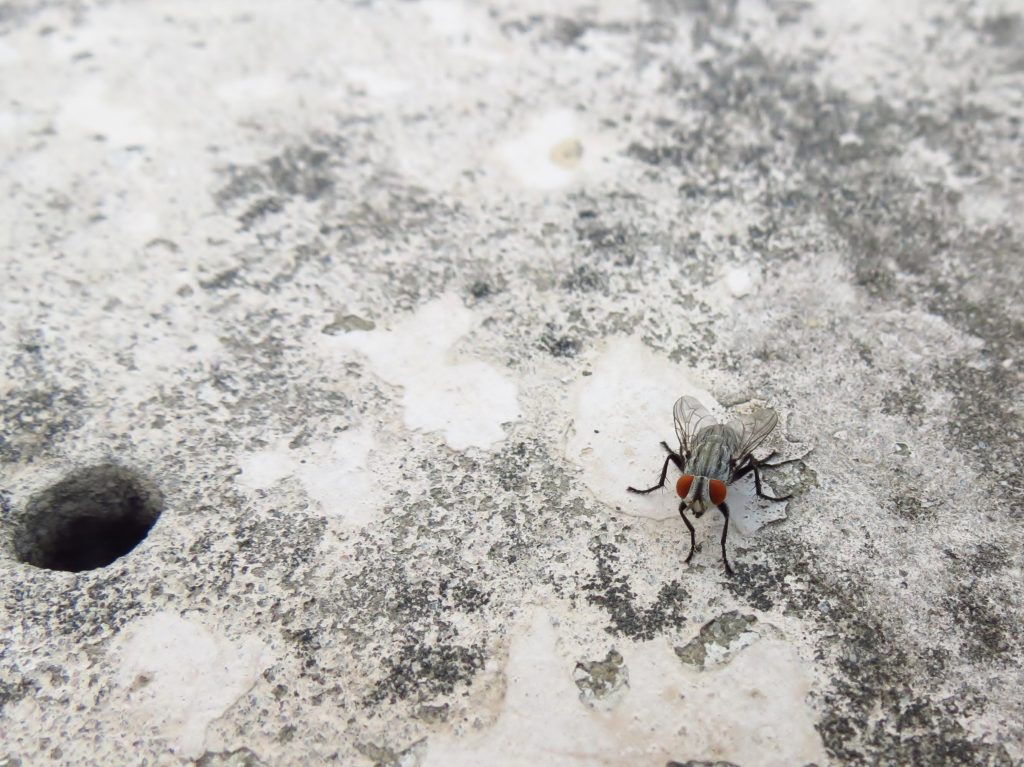
4. Pavers Damage by Insects
Despite being small insects are able to damage pavers. Certain insects, such as ants or termites, may burrow into pavers, leaving holes or tunnels in the surface. Some insects, like the beetle, may secrete substances that can stain or discolor pavers. Wood-boring beetles may consume or damage the wood fibers in wooden pavers, causing them to become weak or disintegrate. Insect damage on pavers can occur due to a variety of factors, including the type of paver, the type of insect, and the presence of food or moisture sources. For example, wood pavers may be more susceptible to insect damage than concrete pavers, and pavers located near sources of food or water may be more attractive to certain types of insects. To prevent insect damage on pavers, it is important to maintain the paver surface and remove any sources of food or moisture that may attract insects. In some cases, it may also be necessary to use insecticides or other pest control measures to prevent insect infestations. Regular inspection and maintenance of the pavers can also help identify any issues early on, allowing for timely repair and maintenance to extend the life of your landscaping.
4. Pavers Damage by Insects
Despite being small insects are able to damage pavers. Certain insects, such as ants or termites, may burrow into pavers, leaving holes or tunnels in the surface. Some insects, like the beetle, may secrete substances that can stain or discolor pavers. Wood-boring beetles may consume or damage the wood fibers in wooden pavers, causing them to become weak or disintegrate. Insect damage on pavers can occur due to a variety of factors, including the type of paver, the type of insect, and the presence of food or moisture sources. For example, wood pavers may be more susceptible to insect damage than concrete pavers, and pavers located near sources of food or water may be more attractive to certain types of insects. To prevent insect damage on pavers, it is important to maintain the paver surface and remove any sources of food or moisture that may attract insects. In some cases, it may also be necessary to use insecticides or other pest control measures to prevent insect infestations. Regular inspection and maintenance of the pavers can also help identify any issues early on, allowing for timely repair and maintenance to extend the life of your landscaping.

5. Plant growth through pavers
While making your yard look good, plants may be able to cause damage to your pavers. Roots from plants or trees can push up pavers or cause them to shift or become uneven. Pavers can crack or break due to the pressure exerted by roots growing underneath them. Certain plants, such as grass or weeds, can stain pavers with their sap or other secretions. This damage can occur due to improper installation or maintenance of the paver surface, or due to the natural expansion of plant roots. To prevent plant growth from damaging pavers, it is important to properly design and install the paver surface, ensuring that there is sufficient space between pavers to allow for proper drainage and the natural expansion of plants. It is also a good idea to regularly maintain the paver surface by removing weeds or other unwanted plant growth, and to avoid planting trees or other large plants near the paver surface. Regular inspection and maintenance of the pavers can also help identify any issues early on, allowing for timely repair and maintenance to extend the life of your landscaping.
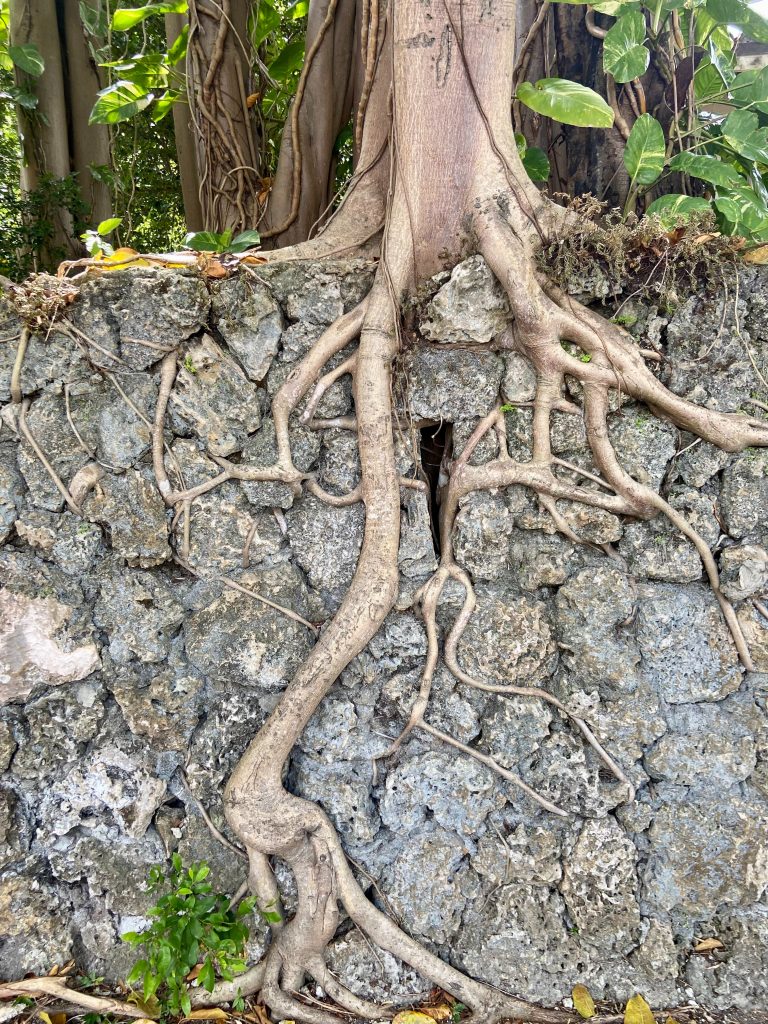
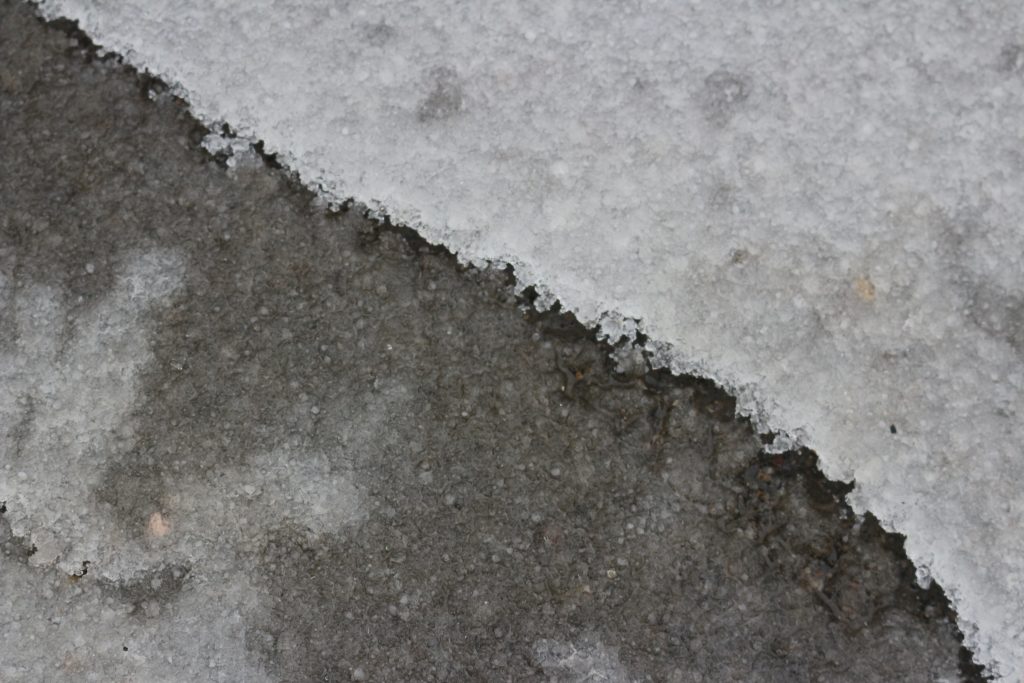
6. Pavers freeze-thaw cycles
Freeze-thaw damage on pavers typically occurs in areas with cold winters, where water can freeze in small pores or cracks in the paver surface. As the water expands during freezing, it can cause the paver to crack or break. When the water thaws, it can leave behind small pits or indentations in the paver surface. You won’t have to worry about this often in Florida, but it is a common way for damage to happen. Pavers can crack or break due to the expansion and contraction that occurs during freeze-thaw cycles. Spalling or flaking due to repeated freezing and thawing of water trapped in small pores or cracks in the paver surface is another common problem. They can even become dislodged due to the expansion and contraction of the ground beneath them during freeze-thaw cycles.
6. Pavers freeze-thaw cycles
Freeze-thaw damage on pavers typically occurs in areas with cold winters, where water can freeze in small pores or cracks in the paver surface. As the water expands during freezing, it can cause the paver to crack or break. When the water thaws, it can leave behind small pits or indentations in the paver surface. You won’t have to worry about this often in Florida, but it is a common way for damage to happen. Pavers can crack or break due to the expansion and contraction that occurs during freeze-thaw cycles. Spalling or flaking due to repeated freezing and thawing of water trapped in small pores or cracks in the paver surface is another common problem. They can even become dislodged due to the expansion and contraction of the ground beneath them during freeze-thaw cycles.

Get a Quick Quote from
The Best Pavers & Landscaping Company in Lakewood Ranch, Florida.
For more than 14 years, we’ve provided quality pavers repairs, paver installation, designs, and landscaping services to our customers. Sarasota, FL area customers can contact our experts at Racioppi’s Landscape & Design by filling out our form and requesting a quote for your next pavers project or landscaping needs.
-
Locally Owned Business
-
Licensed & Insured
-
5 Year Warranty
-
14+ Years of Experience
